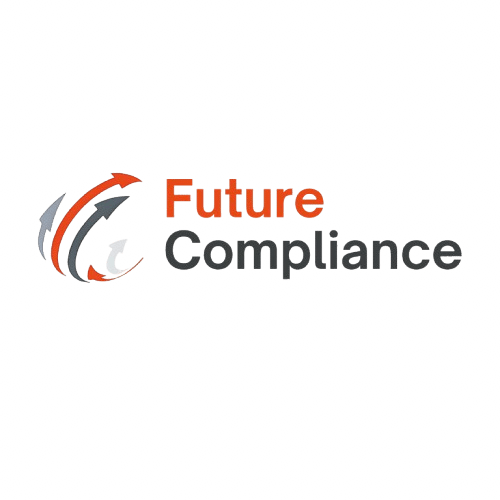







Introduction
AML (Anti-Money Laundering) compliance training is a critical requirement for financial institutions, fintech companies, and other regulated businesses. Regulatory authorities such as the Financial Action Task Force (FATF), Financial Crimes Enforcement Network (FinCEN), and European Banking Authority (EBA) mandate AML training to prevent financial crimes, including money laundering and terrorist financing.
A structured AML compliance training program helps organizations:
- Adhere to local and international AML regulations
- Detect and mitigate financial crime risks
- Avoid regulatory penalties and reputational damage
This guide provides a comprehensive overview of AML compliance training, covering key components, global regulations, best practices, and implementation strategies.
What is AML Compliance Training?
AML compliance training educates employees and compliance officers on detecting, preventing, and reporting suspicious financial activities. It covers essential topics such as:
- The fundamentals of money laundering and terrorist financing
- Identifying suspicious transactions and red flags
- Key AML laws and regulatory requirements
- Filing Suspicious Activity Reports (SARs)
This training ensures businesses remain compliant with the standards set by global regulatory bodies, including:
- Financial Action Task Force (FATF) – Sets international AML/CFT standards
- Financial Crimes Enforcement Network (FinCEN) – Oversees AML compliance in the United States
- European Banking Authority (EBA) – Regulates AML measures across the European Union
Why is AML Compliance Training Important?
Regulatory Compliance
Failure to comply with AML training requirements can result in significant penalties. Some notable enforcement actions include:
- HSBC was fined $1.9 billion for AML compliance failures (Source: U.S. Department of Justice).
- Danske Bank faced $2 billion in penalties for facilitating illicit financial flows.
Risk Mitigation
AML training helps businesses detect and prevent financial crimes such as:
- Trade-based money laundering (TBML)
- Structuring transactions (Smurfing)
- The misuse of shell companies for illicit funds
Protecting Business Reputation
Non-compliance can lead to reputational damage, loss of banking relationships, and operational risks. A strong AML training framework helps safeguard an institution’s credibility.
Key Components of AML Compliance Training
Understanding Money Laundering and Terrorist Financing
Employees should be trained on the three stages of money laundering:
- Placement – Injecting illicit funds into the financial system
- Layering – Conducting complex transactions to obscure the source of funds
- Integration – Reintroducing laundered money into the economy
Global AML Regulations
Training programs should cover:
- FATF Recommendations – Global AML compliance framework
- EU’s 6th Anti-Money Laundering Directive (6AMLD) – Strengthens AML enforcement in the European Union
- Bank Secrecy Act (BSA) – Regulates AML compliance in the United States
Recognizing Suspicious Transactions
Employees must be trained to identify red flags, such as:
- Large cash deposits with no legitimate business purpose
- Frequent transactions just below the reporting threshold
- Wire transfers to high-risk jurisdictions with no clear explanation
Filing Suspicious Activity Reports (SARs)
Organizations must establish clear protocols for filing SARs with regulatory bodies such as:
- FinCEN (United States)
- UK Financial Conduct Authority (FCA)
- Europol
Role-Specific AML Training
AML training should be customized based on job roles:
- Frontline staff: Recognizing suspicious customer behavior
- Compliance teams: Implementing AML policies and procedures
- Senior management: Understanding regulatory obligations and strategic compliance decisions
Best Practices for Implementing AML Compliance Training
Regular Training and Updates
Regulatory changes occur frequently, making it essential for businesses to provide annual refresher training to employees.
Leveraging Technology for AML Training
AI-driven AML training platforms, such as Dow Jones Risk & Compliance, provide interactive courses, case studies, and real-world examples to enhance learning.
Obtaining Industry-Recognized AML Certifications
Employees should be encouraged to obtain professional AML certifications, including:
Customizing Training for High-Risk Sectors
AML risks vary by industry. Financial institutions, real estate firms, and cryptocurrency businesses should tailor training based on their specific exposure to money laundering risks.
Monitoring and Measuring Training Effectiveness
Organizations should implement Key Performance Indicators (KPIs) to assess the effectiveness of AML training programs. Regular assessments, quizzes, and compliance audits help ensure employees retain the necessary knowledge.
Conclusion
AML compliance training is a fundamental component of a company’s risk management framework. By implementing structured and role-specific training programs, organizations can mitigate risks, comply with regulatory requirements, and protect themselves from financial crimes and reputational harm.
To stay up to date with the latest AML compliance developments, visit the Financial Action Task Force (FATF) or explore industry-recognized training programs through ACAMS.
For customized AML compliance solutions, consult with experts at FTI Audit.










